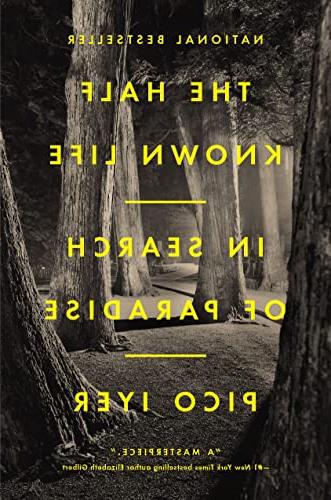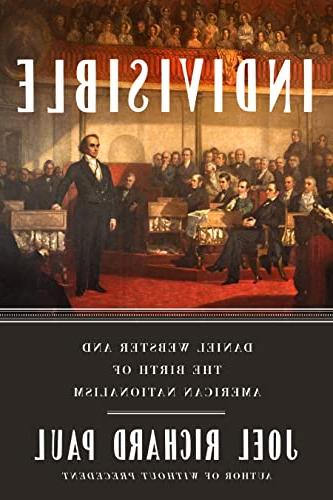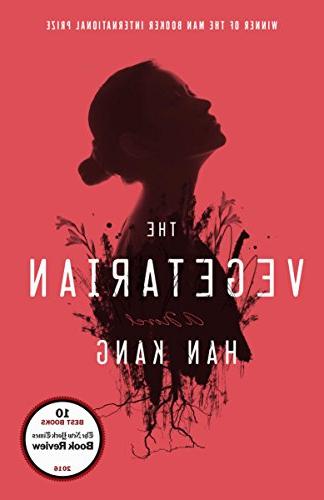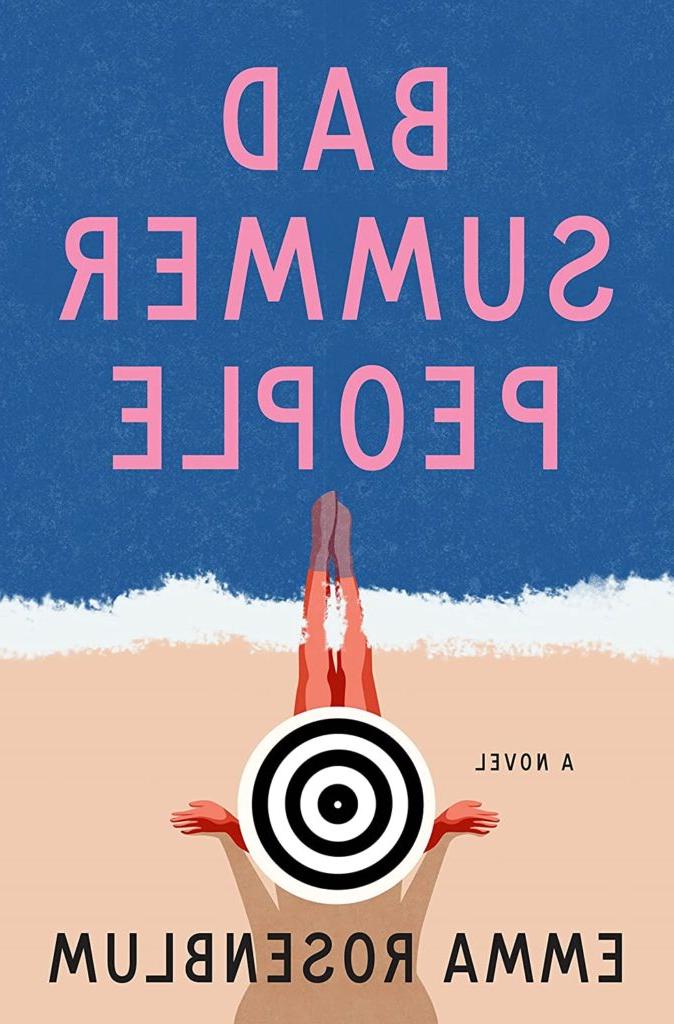Beach Reading

There’s still a lot of summer left, so I have five nonfiction and five fiction recommendations for your beach reading.
Nonfiction

The Half-Known Life: In Search of Paradise, Pico Iyer
What is Paradise? Where is Paradise? Pico Iyer, a prolific writer of his many travels, visits the holy sites of Iran, Japan, Jerusalem, India and Sri Lanka to find out. He observes the paradox that so much violence has accompanied so many of the holy places, and death is especially pervasive here. Of course, Paradise cannot be found on this earth, and death is not the opposite of life, but the opposite of birth, quoting a Buddhist scholar. Iyer is a wonderful writer, with beautiful prose that will entice you to visit each of these sites. And his musings on Paradise may help us appreciate the life we have.

Oceans of Grain, Scott Reynolds Nelson
Trade built empires, not the other way around, and nothing was as important to trade, or empires, as wheat. Nelson, a professor at the University of Georgia, offers a deeply fascinating history of the grain trade, with an emphasis on Ukraine, the breadbasket of Europe. We learn also of the importance of nitroglycerin in the grain trade, and there are many insightful connections that Nelson makes between Russian serfs and American slaves, or how Catherine the Great emulated the American grain system, as examples. This is a wonderful history that brings in many aspects of social, political and technological developments, all through the critically important lens of grain.

Indivisible, Joel Richard Paul
An American identity was hardly formed in the early days of the Republic. Almost everyone identified with their state or, to a lesser degree, with their region. The Articles of Confederation that guided the country for its first 15 years expressed this in legal terms: it was the thirteen colonies that formed the Union. The Constitution altered the legal framework, with its opening words, We the People, not we the States, but a true national identity had not been formed. Yet 70 years later, millions would join together and stake their lives defending this American identity. How did that transformation from state to national identity occur? There were competing forces for how or even if an American identity would develop, and it was Daniel Webster’s version and vision that eventually emerged. Indivisible is a political history of the first half of the 19th century United States, and Paul brings to life the key figures of the time. But his focal point is Daniel Webster, the greatest orator in American history. At our own time of national division, we would do well to remember Webster’s famous phrase, Liberty and Union, now and forever, one and inseparable. Indivisible is an excellent work of history because it has relevance today.

Sink, Joseph Earl Thomas
This is an extraordinary memoir, told first in the third person as a preteen, and then in the second person as a teenager growing up in poverty, filth, drugs, and violence of Philadelphia in the 1990s. Joey relates his life as he experiences it in an even-handed, matter-of-fact way. This lack of sensationalism makes his everyday struggles all that more powerful to absorb. His mother is a crack addict, in and out of his life. His grandmother takes him and his sister in, but she, too, is hardly around. His grandfather beats her, and beats on Joey too, but at least gives them a place to stay. Joey escapes to the world of video games and anime, but the real world never allows him to escape its travails for long. Still, Joey survives, seeking love and learning how to give love. This is an autobiography that reads like a novel, extraordinary, shocking and heart-wrenching, a remarkable debut from a gifted writer.

Easily Slip Into Another World, Henry Threadgill
Henry Threadgill is one of the great jazz composers of our era, winner of a Pulitzer Prize, and this is his autobiography. Now, I think that most autobiographies are terrible: they’re written by people who can’t write, and are either out to settle scores or to create a hagiography. Neither is true here. This book will appeal primarily to musicians, and I found it most interesting when he talked about how he approaches composing. It can be a little technical, so some musical foundation is helpful, but there is so much more to savor. Threadgill fills the book with the vivid characters among his own family, and his experiences growing up on Chicago’s South Side, his time as a soldier in Vietnam, to his development as a musician. For someone who was expelled from schools, the breadth of his erudition is remarkable. All his knowledge and experiences come together in his music. Threadgill tells his life story simply and directly. It is as much a look into the social world of his era as it is about how music is created. This should have wide appeal beyond those interested in jazz, but for those who are, this is a treasure.

The Rabbit Hutch, Tess Gunty
This is a novel about the pathetic lives of pathetic people living in a pathetic town in Indiana. It is also an astonishing debut novel that connects us to each of the characters, their humanity, their flaws, with poignant social commentary of the struggles of a Rust Belt community that seeks to revive its former prosperity. The writing is magical and mesmerizing, a worthy winner of the National Book Award.

The Vegetarian, Han Kang
This is a short, surreal, disturbing novel of a woman who has a dream that she should no longer eat meat. Her family find this behavior baffling as she loses weight and seems to fade into her own, hidden world. The story is told first from the perspective of her husband, then her brother-in-law, and finally from her sister. It contains acts of violence and sex, hallucination and nightmares. Yet each character is portrayed with such delicacy and kindness, even as each questions their grip on reality. The book created quite a stir in Korea when it was published in 2007, but its English translation in 2016 garnered the International Booker Prize. It is unsettling, but still beautiful.

Bad Summer People, Emma Rosenblum
This is perfect Beach Reading material: a close-knit community that has summered on Fire Island for generations. There’s the usual obnoxious New York City financiers and their trophy wives and trophy kids, the new tennis pro whom every woman lusts over, the nannies who endure the boredom and disregard, the unending gossip. And a murder. This is not high literature, but as a debut novelist, Emma Rosenblum captures perfectly the cadence, affectations and pettiness of the upper, upper class.

Victory City, Salman Rushdie
A nine-year old girl watches her mother walk with all the other women of the village, one by one, onto a funeral pyre, following the deaths of their husbands in battle. As the girl walks away, she is visited by a goddess, who gives her a bag of magic seeds, from which a city, and then an empire, is grown. The girl lives 248 years, witness to the rise and fall of her empire. Before she dies, she leaves a manuscript recounting the history of this empire, and her role in nurturing it for over two centuries. This is an enchanting tale, told by a master storyteller, but it is much more. Rushdie has long written about political hypocrisy, the leaders who make war in the name of peace, the intolerance of those who proclaim, and impose, their purity, and these themes flow throughout the book. Rushdie gives us lessons for our own time in this magical, enchanting book.

Signal Fires, Dani Shapiro
This is a truly beautiful, emotional novel, of two families, neighbors, over the course of fifty years. We are introduced to each parent and child, their fears and hopes and inner feelings. It is a rare gift to be able to write about ordinary people with ordinary lives in a way that touches us deeply. In the end, this is a book about caring, about love. There is nothing exceptional in the plot, or about the characters. But you will be moved by the tenderness and love in this novel.

